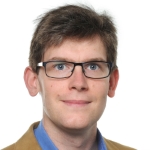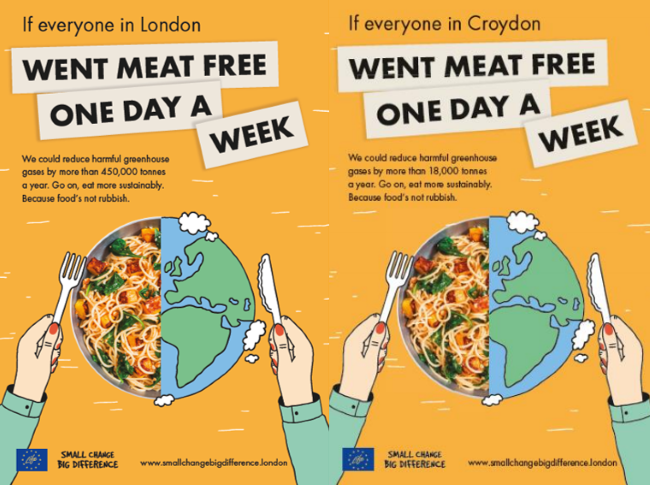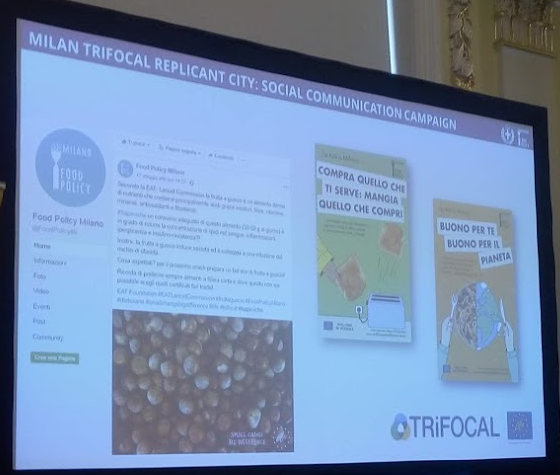We’ve asked our #DataImpactFellows to share a day in their life.
 Christian Reynolds currently splits his time between two jobs. In this post he tells us about seeing data impact in action during a day in his life as a Technical Specialist at WRAP. In a future post, he plans to talk about his work at Sheffield and N8Agrifood.
Christian Reynolds currently splits his time between two jobs. In this post he tells us about seeing data impact in action during a day in his life as a Technical Specialist at WRAP. In a future post, he plans to talk about his work at Sheffield and N8Agrifood.
The Waste and Resources Action Programme (or WRAP) is an environmental charity that aims to help the world use resources sustainably. There are multiple circular economy and resource management themes, WRAPs current priority sectors are:
- Food and drink
- Clothing and textiles
- Plastics
As a Technical Specialist at WRAP, my work is pretty varied, and I work on multiple projects concerning sustainable food consumption with food waste reduction.
One day I will be baselining Indonesian food waste as part of the Indonesia Food Loss and Waste Action Partnership, the next I will be supporting World Resource Institute’s Better Buying Lab with modelling.
Instead of going into details on all this variation, I’d like to tell you about one specific day a few weeks ago, when years of hard work finally came together.
The TRiFOCAL project
The project is TRiFOCAL London – Transforming City FOod hAbits for Life, an initiative led by Resource London – the partnership between WRAP and the London Waste and Recycling Board (LWARB) – together with Groundwork London.
TRiFOCAL has been running since 2016, and ends in 2019. The overall aim of the TRiFOCAL London project is to pilot an innovative approach to encourage three behaviours:
- The prevention of food waste by changing planning, shopping, storage and meal preparation behaviours
- The promotion of healthy and sustainable eating by changing purchasing and preparation practices
- The recycling of unavoidable food waste.
TRiFOCAL works across London, engaging with communities, workplaces, schools and food service businesses in nine boroughs (Bexley, Croydon, Hackney, Hounslow, Islington, Lambeth, Merton, Sutton and Tower Hamlets). TRiFOCAL also reaches further afield through 10 EU replication cities, each of which takes parts of the TRiFOCAL campaign and refines and redeploys the messages further.
My role in the TRiFOCAL London project was providing data analysis support, as well as helping to design the healthy and sustainable eating aspect of the campaign.
As part of this I helped design the poster messaging.

Image: Wave 1 Posters
After the successful wave 1 poster campaign, I used data from UK Data Service datasets (such as the National Diet and Nutrition Survey), along with data on UK households’ CO2 emissions and meta-analysis of the environmental impacts of food to calculate the greenhouse gas emissions benefits of everyone in London (and each individual borough) going meat free one day a week.
These statistics were then used in the wave 2 poster campaign and wave 3 materials. The data framework I made to calculate this figure was also used to create posters for EU replication cities.

Image: Wave 2 and 3 “meat free” posters.
A very special day
On Tuesday 8th October 2019, I attended a two-part TRiFOCAL event.
In the morning the 10 EU replication cities all gathered to share their learnings. It was brilliant to see how far the TRiFOCAL project (and my data support tools) had spread.

Image: Slide from the Milan replication city, note the use of the “meat free” poster with language edits.
In the afternoon, all the groups who had been involved with the TRiFOCAL schools programme then came together to share their learnings, and unveil the new Education Resource – which can be accessed through the TRiFOCAL Resource Bank.
Part of this teachers pack was the ‘Healthy and Sustainable Food’ lesson, which I provided data input and support for.

Image: the Healthy and Sustainable Food lesson plan.
A highlight of this workshop was that children from some of the schools gave talks (and performed a rap song) about their favourite parts of the schools programme.
It was very humbling to have my statistics on food waste and healthy and sustainable eating quoted back to me by students from years 5 and 6, and great to know that they (and their parents) have changed behaviour due to these lessons and activities.
As I walked home that evening I reflected that it is not often that you get to see the impact of your data analysis so soon. In the TRiFOCAL project, I have been lucky enough to meet lots of people who have improved their waistlines (and waste lines!) as a direct result of WRAPs great work.
About the author
Christian Reynolds is one of our #DataImpactFellows for 2019.
Christian currently works in in two roles:
- Knowledge Exchange fellow for N8 Agrifood, an interdisciplinary research programme that combines agrifood research with expertise in social sciences across 8 northern research intensive universities.
- Technical Specialist and Analyst for the Waste and Resources Action Programme (WRAP), a registered charity whose aim is to create a world in which resources are used sustainably, it is a global thought and policy leader in food sustainability and food waste.
